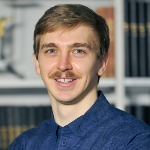Nonlinear phenomena are studied in a variety of different engineering applications, ranging from stick-slip vibrations in oilwell drillstrings to subharmonic resonances of AFM microcantilevers. These systems are extremely complex and have a very rich dynamic behavior. Correspondingly, modeling of such systems is far from trivial, models are of large state dimension and can only be reduced to small dimensions through the adoption of a large number of simplifying modeling assumptions. Although this paradigm is inevitable to solve engineering problems, it is cumbersome for fundamental research on specific nonlinear phenomena. Moreover, the application of methods in nonlinear dynamics is still restricted to a few state dimensions. In academics, there is a need for relatively simple systems which can well be modeled with a few degrees of freedom and only show one particular nonlinear phenomenon. For this reason, a number of science toys (e.g. the Euler disk, the tippetop, the rattleback) have been taken up by the research community as archetypes for nonlinear phenomena, such as finite-time singularities or friction-induced instabilities. In this talk, we will bring a new archetype for friction-induced inversion to the scientific playground: the tippedisk, being an inhomogeneous disk spun on a support around an in-plane axis. Similar to the tippetop, the tippedisk inverts its orientation when spun rapidly. However, unlike the tippetop, the body has neither rotational symmetry in geometry, complicating its interaction with the supporting hyperplane, nor in its principal moments of inertia, leading to additional gyroscopic terms. We will present an adequate numerical model and use singular perturbation theory to describe and understand the inversion phenomenon globally on a two dimensional submanifold. Furthermore, we will compare the low dimensional analysis with laboratory experiments. The tippedisk proves to be an excellent real-life system which can easily be modeled and experimentally tested and which allows to use the whole toolbox of nonlinear dynamics to analyze its global dynamics.
Expert Contact:

Remco I. Leine
Prof. Dr. ir. habil.director



